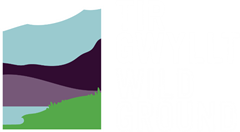Maes y Grug, Unnamed Road, Alltami, Near Mold, CH7 6RH (Open Access)
Laybys available for parking near to the reserve
Grid Reference SJ 262 663
4 hectares
No toilet facilities available
Accessible via the local Public Rights of Way network
Contact 01978 269568 | [email protected]
Access
Maes y Grug is situated in Alltami which is approximately 3 miles outside Mold. The site was a former colliery and consists of a large pond surrounded by deciduous woodland along with smaller ponds, marshland and grassland surrounded by pastureland. Wild Ground has part ownership of the site, along with Flintshire County Council (sub-contracted to ARC), and it is managed mainly for its great crested newt and reptile populations. Management involves pond creation and restoration, removal of invasive species and litter and woodland and scrub control.
Habitats
The site is a Site of Special Scientific Interest (SSSI) and a Special Area of Conservation (SAC) due mainly to the presence of great crested newts. Flora that can be found at the reserve includes alder, willow, holly, gorse, sedges and rushes.
Notable Species
- Mammals: Water shrew, Mole, Fox, Badger
- Amphibians: Common frog, Common toad, Smooth newt, Palmate newt and Great crested newt.
- Invertebrates: Broad-bodied chaser dragonfly
- Birds: Blue tits, Great tits, Blackbird, Wren, Dunnock, Nuthatch, Tawny owl and Great spotted woodpecker, Coot, Moorhen, Mallard, Tufted duck and Canada goose. Scarcer sights include Barn owl, Grasshopper warbler, Peregrine, Hobby, Starling, Kingfisher
- Reptiles: Grass snake, Common lizard
Special Features
Great crested newts were confirmed as being present on the site in 1989. Mineral extraction took place there in 1991 and 1992, and the site was restored in 1993.
Management
Management involves mainly invasive species removal, litter and fly-tipping removal, pond creation and woodland thinning to remove diseased trees and to allow more light onto the ponds and woodland floor.
A dry stone clawdd was created on the reserve to provide refuge for amphibians and reptiles, as well as teaching a traditional skill to volunteers.
